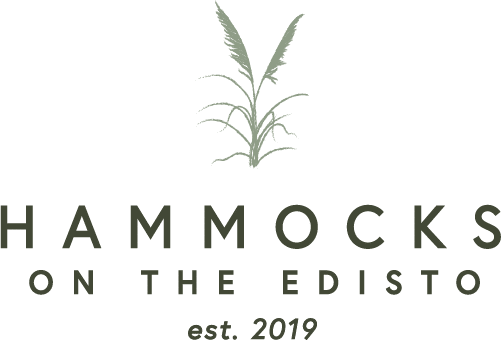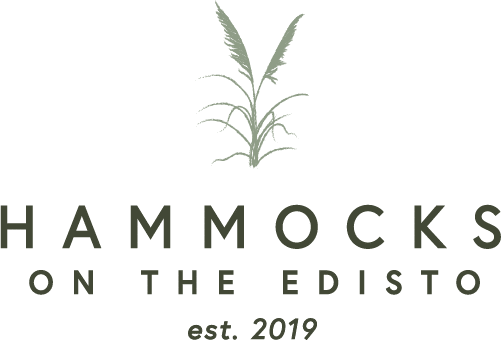Gratitude is a powerful and intentional practice that supports emotional healing and personal growth in addiction recovery, particularly for women. At Hammocks On The Edisto, gratitude is deeply integrated into the recovery process—not as a way to ignore pain, but as a method to recognize beauty, connection, and progress even in the midst of struggle. This practice helps shift focus from shame and regret to the present moment, offering clarity, resilience, and self-compassion. Through simple daily actions like journaling, mindful reflection, community sharing, and nature-based practices, women learn to embrace gratitude as a steady, grounding force. Hammocks fosters this mindset through holistic, trauma-informed care and a nurturing environment where gratitude becomes a natural part of healing.
How to Practice Gratitude in Recovery
Gratitude is more than just saying “thank you”—it’s a conscious practice of noticing what’s good, even in the midst of struggle. In the context of healing from addiction, gratitude in recovery becomes a gentle way to reconnect with moments of peace, strength, and meaning. It’s not about pretending everything is perfect, but about honoring the small things that remind us life is still unfolding with possibility.
For many women in recovery, especially those healing from trauma, feelings of shame or grief can cloud out hope. Gratitude offers a way back to presence—a reminder that healing doesn’t erase the past, but it does open the door to joy, self-compassion, and renewal.
At Hammocks On The Edisto, gratitude is woven into the fabric of our care. Through mindfulness, nature, community, and holistic therapies, we help women gently return to themselves—and to the everyday beauty that supports lasting transformation.
In the sections below, we’ll explore why gratitude matters in recovery and how you can begin to cultivate it, one intentional moment at a time.
Why Gratitude Matters in Recovery
Gratitude in recovery is a lifeline—a practice that shifts our focus from what’s been lost to what’s being found. For women healing from addiction, this mindset becomes a refuge from the storm of shame, regret, and self-judgment that often accompanies early recovery. Instead of dwelling on past mistakes or fearing the future, gratitude anchors us in the present, revealing small but profound gifts: a moment of quiet, a supportive word, or the simple freedom of a sober breath.
The benefits of practicing gratitude in recovery
Developing a gratitude practice supports emotional healing and rewires the brain in powerful ways:
- Gratitude gently redirects focus from what feels lost to what is meaningful in the present moment.
- Regular reflection activates parts of the brain associated with calm, clarity, and connection.
- Gratitude helps women build resilience and tap into inner strength during moments of doubt or distress.
- Research shows that gratitude practices can improve mood, sleep, and overall well-being.
- Instead of focusing on past pain, gratitude creates space for growth and self-forgiveness.
In early recovery, women often carry heavy burdens—grief, regret, and the pressure to be “doing better.” Gratitude doesn’t erase those feelings, but it offers a way to hold them with greater gentleness. It allows space for both the ache of healing and the beauty of progress.
This is why the recovery process at Hammocks On The Edisto centers on reflection, self-compassion, and emotional grounding. Whether it’s through therapeutic work, mindful movement, or quiet time in nature, our environment helps women cultivate gratitude not as a task, but as a quiet return to themselves.
Simple Ways to Practice Gratitude Each Day
Gratitude doesn’t need to be grand to be meaningful. In fact, the most lasting shifts often come from simple, consistent practices that ground us in the present moment. When life feels overwhelming or progress feels slow, even a quiet moment of appreciation can offer clarity and peace.
Ideas to get started
For women in recovery, these small acts can become powerful reminders of growth, connection, and possibility. Here are some ideas to get you started:
- Gratitude journaling: Take a few minutes each day to write down one or two things you’re thankful for. They might be as simple as a good night’s sleep, a meaningful conversation, or a moment of stillness.
- Sharing in community: Speak your gratitude aloud in group therapy or support circles. Naming these moments aloud can deepen connection and help others feel seen.
- Nature-based noticing: During a walk or time outdoors, quietly observe and appreciate something beautiful—sunlight through the trees, birdsong, or the steady flow of the river.
- Mindful meditations: Begin or end your day with a short gratitude-focused meditation. Breathe deeply and reflect on what brought you peace or comfort that day.
- Evening reflection prompts: Ask yourself, “What am I grateful for today?” or “What small thing supported me today?” This can help shift perspective before rest.
These practices aren’t about denying struggle. Instead, they create space for holding both—pain and gratitude, uncertainty and hope—with compassion.
How gratitude is woven Into treatment at Hammocks Recovery
Gratitude in recovery is most powerful when it’s supported by a healing environment that encourages reflection and emotional safety. At Hammocks Recovery, this includes:
- Gratitude-based journaling and mindfulness exercises during yoga and meditation, nature walks, or quiet reflection time.
- Therapeutic exploration of gratitude as a resource for self-compassion in group and individual sessions.
- Community rituals and shared reflections that celebrate even the smallest victories—helping women feel witnessed and valued.
- Holistic therapies such as Reiki and wellness coaching, which allow space for emotional release and insight, often unlocking moments of deep appreciation.
Whether written in a notebook, shared aloud, or felt silently during a moment of calm, these practices make gratitude in recovery a steady companion on the path toward healing.
Honoring the Good, Even in Healing
Gratitude in recovery doesn’t ask you to ignore the pain—it simply helps you remember what else exists alongside it: the resilience of your spirit, the comfort of a sunrise, the courage it takes to heal. It’s a practice of saying, “This is hard, and there is still good.”
At Hammocks Recovery, we create space for both. Here, gratitude grows naturally—in the quiet moments in nature, the shared laughter in group therapy, and the gentle guidance of holistic therapies that honor your whole story. You don’t have to force it or do it alone.
If you’re ready to explore how gratitude can deepen your healing journey, we invite you to reach out. Contact Hammocks Recovery today to learn more about our residential program, where every woman’s path is met with compassion, evidence-based care, and the transformative power of nature.
Frequently Asked Questions
How does gratitude help in recovery?
Gratitude serves as a compass in recovery, gently redirecting focus from a state of lack to one of abundance. Research shows it:
Rewires the brain: Regular practice reduces activity in stress centers while increasing dopamine levels.
Builds resilience: By highlighting small wins (“I stayed sober today”), it reinforces progress.
Deepens connections: Sharing gratitude in a community fosters a sense of belonging, a key factor in sustained recovery.
At Hammocks Recovery, we pair this practice with evidence-based tools like DBT and mindfulness to strengthen emotional resilience.
What if I don’t feel grateful during recovery?
That’s okay. Gratitude is not a requirement—it’s a practice. Many women struggle to access gratitude at the beginning of recovery, especially when they’re still processing grief, trauma, or shame. There’s no “right way” to feel. Over time, gentle repetition of small gratitude practices, like noticing a moment of peace or writing down one thing that helped you through the day, can help build that muscle naturally.
What are the 4 A’s of gratitude?
The 4 A’s of gratitude are Appreciation, Approval, Admiration, and Attention. These reflect ways we can express and experience gratitude—by appreciating the moment, affirming ourselves and others, admiring beauty or resilience, and offering focused attention to what brings us peace. Practicing these qualities supports emotional healing and fosters deeper presence in daily life.
How does Hammocks integrate gratitude into treatment?
Gratitude is gently woven into the healing experience through:
Nature-based therapies, such as riverside reflection, mindful walks, and outdoor meditations.
Group therapy and community sharing, where women witness one another’s growth and celebrate small victories.
Journaling and mindfulness practices, often guided by thoughtful prompts or end-of-day reflections.
Holistic therapies like Reiki, EMDR, yoga, and wellness coaching, which help women release emotional blocks and open to gratitude naturally.
Together, these experiences support a meaningful connection to gratitude in recovery, helping women rediscover what brings them peace, strength, and joy.





